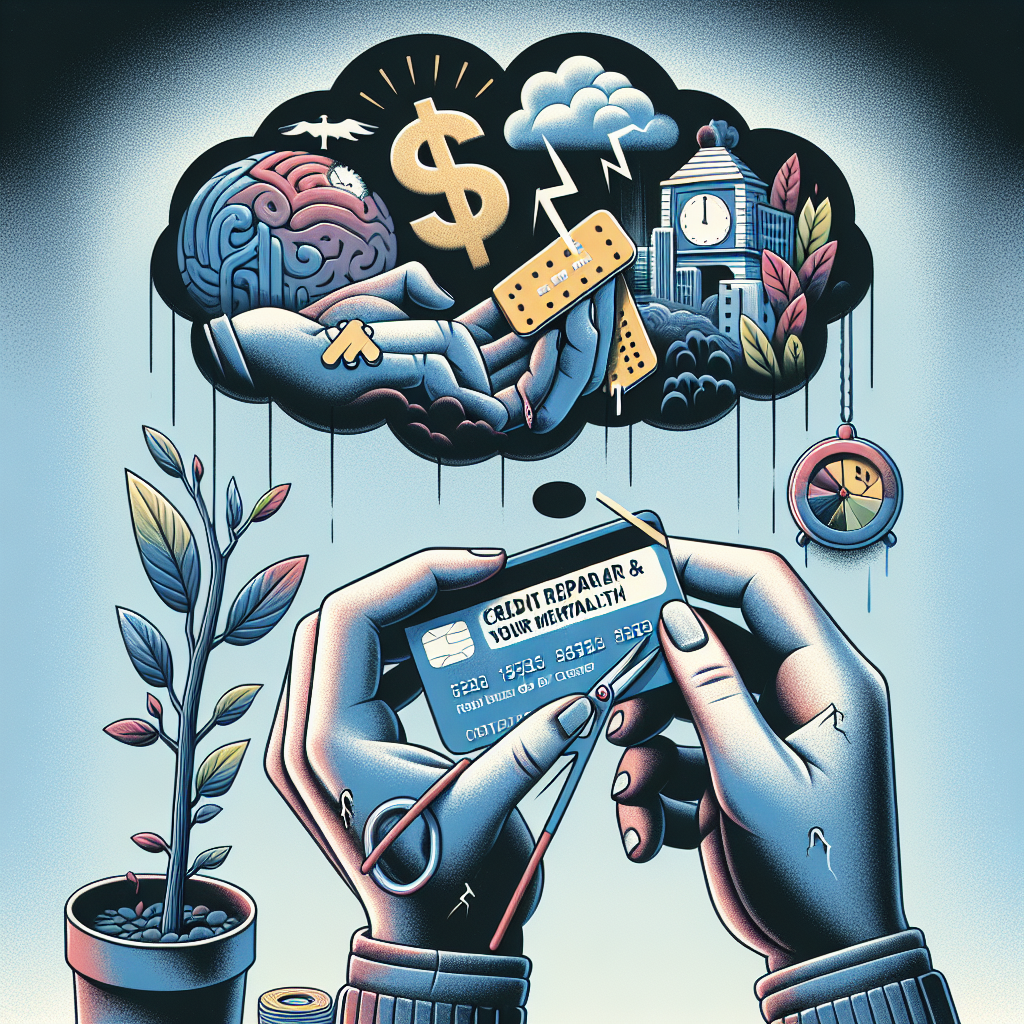In today’s fast-paced world, financial stability is often linked to mental well-being. Many individuals may not realize the significant impact that poor credit can have on mental health. Here’s an in-depth look at the connection between credit repair and mental health, exploring the hidden stress associated with bad credit and how to combat it.
Understanding Credit and Its Impact on Mental Health
What is Credit and Why Does It Matter?
Credit refers to the ability to borrow money or access goods or services with the understanding that you’ll pay later. A credit score is a numerical representation of your creditworthiness, reflecting your financial behavior. Bad credit can result from various factors, including missed payments, defaults, or high credit usage.
The importance of maintaining a good credit score cannot be overstated. It can affect everything from loan approval to housing opportunities, and even employment chances in some industries.
The Psychological Effects of Bad Credit
Bad credit can produce feelings of anxiety, shame, and hopelessness. The constant worry about being denied loans or facing higher interest rates can lead to stress, affecting relationships, job performance, and overall quality of life. Studies have shown a correlation between financial stress and mental health issues, including depression and anxiety disorders.
The Vicious Cycle of Financial Stress
The impact of bad credit often creates a vicious cycle. Financial stress can lead to poor mental health, which can in turn affect decision-making abilities. This situation may result in further financial mistakes, reinforcing a negative loop that feels impossible to escape.
Recognizing the Signs of Stress Linked to Poor Credit
Symptoms of Financial Stress
If you’re experiencing the following symptoms, it may be time to address your credit situation—and prioritize your mental health:
- Constant Worry: Are you frequently anxious about bills, debts, or financial obligations?
- Sleep Disturbances: Are you having trouble sleeping due to stress related to your financial situation?
- Mood Swings: Is financial stress affecting your relationships or leading to irritability?
- Physical Symptoms: Stress can manifest physically, leading to headaches, fatigue, or other health issues.
The Importance of Acknowledgment
Recognizing that your financial situation is affecting your mental health is the first step toward addressing these issues. Acknowledging that your feelings are valid can help you take control of the situation.
Steps to Improve Your Credit and Your Mental Health
1. Educate Yourself About Credit Repair
Knowledge is power. Understanding how your credit score works and what factors influence it can demystify the process and reduce anxiety related to bad credit.
2. Create a Budget
Establishing a clear budget allows you to take control of your finances. Identify areas where you can cut back and allocate funds toward paying off debts. Feeling in control of your finances can ease mental stress.
3. Reach Out for Help
Don’t hesitate to seek help from credit repair organizations or financial advisors. Professionals can guide you through the credit repair process, helping you create a personalized plan.
4. Practice Self-Care
Managing mental health is crucial during the credit repair process. Engage in activities that relieve stress, such as exercise, meditation, or hobbies. Surround yourself with supportive friends and family who understand your challenges.
5. Set Realistic Goals
Set achievable milestones, whether that’s improving a specific percentage of your credit score or paying off a debt. Celebrate small victories to maintain motivation.
The Long-Term Benefits of Credit Repair for Mental Health
Improved Credit Equals Improved Peace of Mind
As you begin to repair your credit, you’ll likely experience a sense of accomplishment and improved self-esteem. Better credit will open up opportunities for loans with favorable terms and housing options, reducing anxiety about future financial decisions.
Building Financial Literacy
As you work on improving your credit, you’ll also be building financial literacy. This newfound knowledge empowers you to make informed decisions, leading to a more confident and secure financial future.
The Ripple Effect on Your Life
Improving your mental health through credit repair can positively impact other aspects of your life—relationships, career prospects, and overall happiness. By addressing financial stress, you can enhance your quality of life and achieve greater peace of mind.
Conclusion
Credit repair is more than just a financial necessity; it’s also a vital component of maintaining good mental health. The hidden stress of bad credit can weigh heavily on individuals, but with the right strategies and support, you can navigate this challenge. Embrace the journey to financial stability and mental well-being by taking the first steps toward credit repair today. Remember, you’re not alone in this process, and every small action counts towards a brighter, stress-free future.

